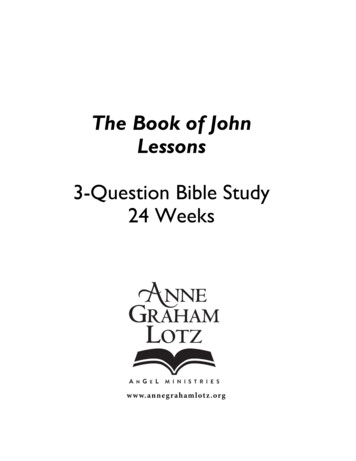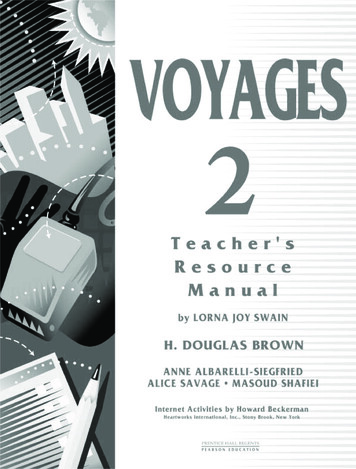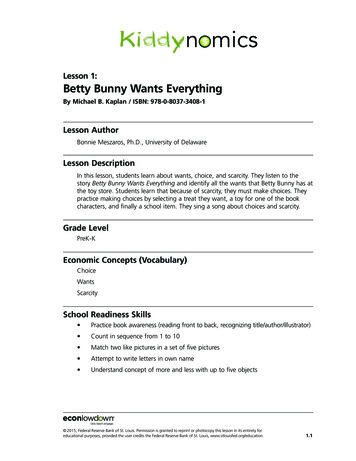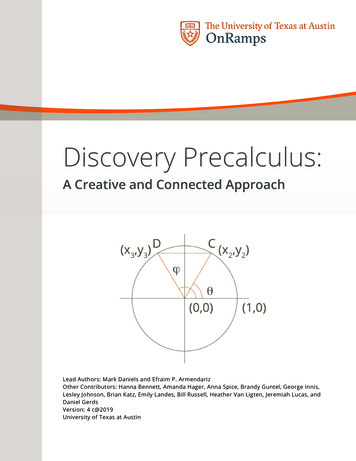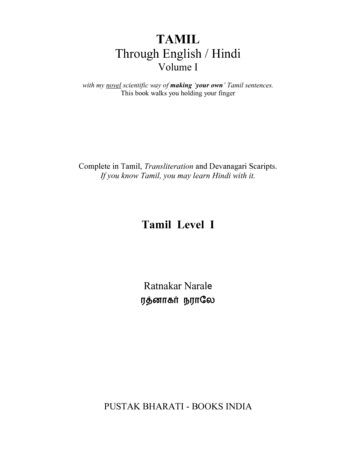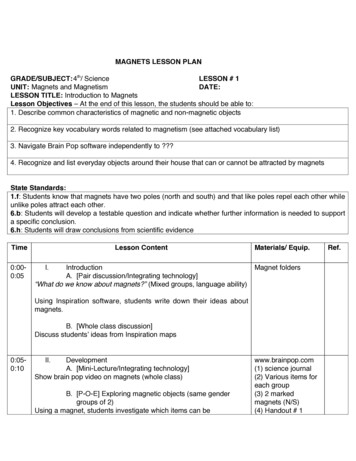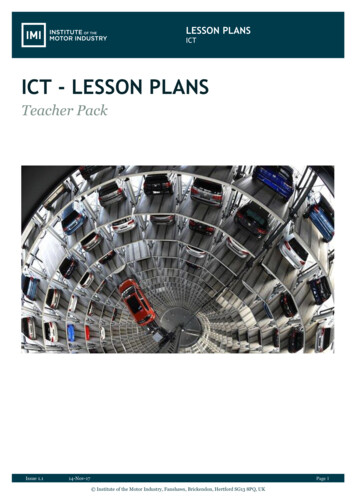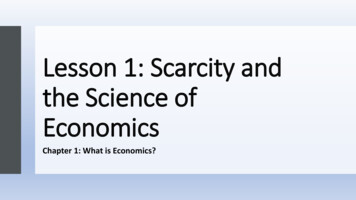
Transcription
Lesson 1: Scarcity andthe Science ofEconomicsChapter 1: What is Economics?
Video: Republic of Happiness1. What are the four major elements that the Bhutanese include intheir central concept of Gross National Happiness (GNH)? Whatothers might you add? What might you want eliminated from theirlist?o Water, education, health, and shelter
Video: Republic of Happiness2. What elements of Western economics do the Bhutanese embrace?What elements does the video tell you they reject? What otherelements of the Western way of life and economics might also berejected based on the three basic, blended foundational elementsof Bhutanese GNH?o Bhutanese embrace economic development for their citizens. They rejectconsumerism and cynicism, because, while one of their foundationalelements is economic development, consumerism and cynicism clash withthe foundation elements of their spiritual values and rich culture.
Video: Republic of Happiness3. How might the Bhutanese attitude toward nature affect itseconomic growth? Do you agree or disagree that the Bhutanesehave a legitimate argument that nature must be respected andpeople should live in harmony with it and not destroy it, even foreconomic gain?o Bhutanese respect for nature might limit their ability to exploit naturalresources for economic gain or profit.
A. Societies do not have enoughproductive resources to satisfyeveryone's wants and needs.Lesson 1 Scarcity and the Science of Economics
A. Societies do not have enough productiveresources to satisfy everyone's wants and needs.1. Explain the differencebetween a want and a need.o A want is not necessary forsurvival, and a need is necessaryfor survival.
A. Societies do not have enough productiveresources to satisfy everyone's wants and needs.2. What is the difference between agood and a service? What kindsof goods are available? What aresome kinds of services?o A good is a useful, tangible item thatcan fulfill a want or need.o A service is a work that is performedfor someone to fulfill a want orneed, but it is not tangible.o Goods include cars, MP3 players,food, and medicine.o Services include haircuts, homerepairs, and concerts.
A. Societies do not have enough productiveresources to satisfy everyone's wants and needs.3. What determines themonetary value of a good orservice? Why are somenecessities less expensive thanunnecessary items?o Scarcity and utility determinemonetary value.o Some necessities are useful butplentiful, so they may cost lessthan unnecessary goods andservices that are very scarce andhave utility.
A. Societies do not have enough productiveresources to satisfy everyone's wants and needs.4. List the four characteristics ofthe accumulated goods thatmake up economic wealth.o Tangibility, scarceness, utility, andtransferability
A. Societies do not have enough productiveresources to satisfy everyone's wants and needs.5. Is anything actually “free”?Why or why not?o Almost nothing is free, becausesomeone must pay for it in thefirst place.
B. Because resources are scarce, allsocieties must decide WHAT goods toproduce, HOW to produce them, andFOR WHOM they are produced.Lesson 1 Scarcity and the Science of Economics
B. Because resources are scarce, all societies must decide WHATgoods to produce, HOW to produce them, and FOR WHOM they areproduced.1. Who makes the decisions aboutWHAT goods to produce in NorthKorea? Who decides in the UnitedStates? How can the decisionsaffect the people living in thosesocieties?o In North Korea, the government decideswhat to produceo In the United States, consumers decide.o In North Korea large amounts of militarygoods are produced instead of consumergoods.o In the United States, what is producedmore closely matches what consumerswant and need
B. Because resources are scarce, all societies must decide WHATgoods to produce, HOW to produce them, and FOR WHOM they areproduced.2. What factors go into making adecision about HOW toproduce the goods? Explainwhy Japanese producers relyheavily on robots.o Available resources helpdetermine how to produce goods.o Because the Japanese populationis relatively old, they rely onrobots more than on people forproduction.
B. Because resources are scarce, all societies must decide WHATgoods to produce, HOW to produce them, and FOR WHOM they areproduced.3. Why must societies decidedFOR WHOM to produce?o There are many different groupsthat need or want a limited supplyof goods.
C. Economics is a study—as well as a socialscience that uses description, analysis,explanation, and prediction—that deals withpeople's efforts to satisfy wants and needsthrough management of scarce resources.Lesson 1 Scarcity and the Science of Economics
C. Economics is a study—as well as a social science that usesdescription, analysis, explanation, and prediction—that deals withpeople's efforts to satisfy wants and needs through management ofscarce resources.1. What is gross domesticproduct and how is it adescription of economicactivity?o GDP is the monetary value of allfinal goods, services, andstructures produced within acountry's borders.
C. Economics is a study—as well as a social science that usesdescription, analysis, explanation, and prediction—that deals withpeople's efforts to satisfy wants and needs through management ofscarce resources.2. How can explanation make iteasier to address economicproblems in the future?o Explanation gives us a commonunderstanding of the way oureconomy works, so we can worktogether more easily.
C. Economics is a study—as well as a social science that usesdescription, analysis, explanation, and prediction—that deals withpeople's efforts to satisfy wants and needs through management ofscarce resources.3. How could prediction lead tobetter economic decisionmaking?o If we can predict the way adecision might turn out, we canchange the decision to avoid a badoutcome.
C. Economics is a study—as well as a social science that uses description, analysis, explanation, and prediction—that deals with people's efforts to satisfy wants and needs through management of scarce resources. Lesson 1 Scarcity and the Science of Economics

